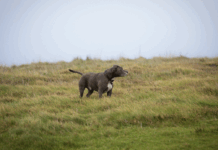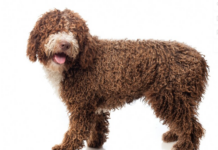Last Updated on August 20, 2024 by Dogs Vets
If you’re seeking a loving and affectionate companion that’s great with kids, the Basschshund could be your ideal match. A delightful mix of the Basset Hound and Dachshund, this breed combines the best traits of both parents, making it a charming addition to any family. In this comprehensive guide, we’ll explore the characteristics, care requirements, and unique traits of the Basschshund to help you decide if this breed is right for you.
Breed Overview
Height: 9 – 12 inches
Weight: 25 – 45 pounds
Lifespan: 12 – 15 years
Colors: Black, white, grey, brown, gold, chestnut
Suitable for: Families with or without children, single people
Temperament: Affectionate, loving, gentle with children, dedicated, cuddly, playful, even-tempered.
The Basschshund is known for its short legs and elongated body, a blend of its Basset Hound and Dachshund heritage. Their ears are long and droopy, though not as pronounced as a purebred Basset Hound’s. Their short coat comes in various colors including brown, grey, white, black, chestnut, or a mix of these. This breed’s appearance can vary based on which parent they resemble more.
Basschshund Characteristics
- Energy: Medium
- Trainability: Medium
- Health: Good
- Lifespan: 12 – 15 years
- Sociability: High
Finding a Basschshund Puppy
Locating a Basschshund puppy requires careful research. Start by finding reputable breeders who practice ethical breeding. Visit their facilities and ask questions to ensure they provide good care. Alternatively, consider checking animal shelters or breed-specific rescues.
View this post on Instagram
Temperament & Intelligence of the Basschshund
The Basschshund is renowned for its sweet and gentle nature. They are dedicated family dogs, loving and cuddly, making them excellent companions. While they are intelligent, they can be stubborn, so consistent and early training is key. They may require extra patience compared to other breeds.

Are These Dogs Good for Families?
Absolutely! Basschshunds are great with children and enjoy playing with them. However, as with all pets, supervise interactions with small children to ensure safety for both the kids and the dog.
Do They Get Along with Other Pets?
Basschshunds have a strong prey drive due to their hunting background, so introduce them to other pets gradually. Starting this process early will help them learn to see other animals as friends rather than prey. Generally, they get along well with other dogs.
Owning a Basschshund: Key Considerations
Food & Diet
Basschshunds have varied food needs depending on their size. Typically, they require 1½ to 2½ cups of food daily, split between two meals. Monitor their food intake to prevent obesity, and limit treats. Consult with your vet for the best diet plan.
Exercise
Though not overly active, Basschshunds enjoy outdoor play and a daily walk. They can become overweight if not given enough exercise, so encourage playtime. Their strong scent-tracking instincts mean they should be kept on a leash during walks to prevent them from wandering off.
Training
Training a Basschshund requires patience. They respond better to commands after some playtime. Consistency is essential, and they may need longer to learn commands compared to other breeds. They may also bark at unusual sights or smells, which can be managed through training.
Grooming
Basschshunds have minimal grooming needs due to their short coat. Brush them once or twice a week and bathe them monthly to manage any odor. Regular nail trimming and teeth brushing are necessary. Pay extra attention to their ears, cleaning them weekly to prevent infections.
Health and Conditions
Minor Conditions
- Ear Infections: Their floppy ears can lead to infections; regular cleaning can help prevent this.
- Eye Problems: Watch for eyelid issues and glaucoma.
Serious Conditions
- IVDD (Intervertebral Disc Disease): This condition affects the spine and may require surgery if severe.
- MVD (Mitral Valve Disease): A heart condition that can be managed with medication.
- Obesity: Monitor their weight closely to avoid health issues related to being overweight.
Male vs Female Basschshund
There is no significant difference in temperament or trainability between male and female Basschshunds. Males may be slightly larger, but both genders make excellent pets.
Three Interesting Facts About the Basschshund
- Extra Care for Ears: Their floppy ears require frequent cleaning to prevent infections.
- Love for Food: Basschshunds have hearty appetites, so monitor their diet to avoid obesity.
- Strong Sense of Smell: They have a strong tracking instinct and will follow scents, so always keep them on a leash during walks.
Conclusion
The Basschshund is an affectionate and devoted companion that fits well into various family settings. With proper care, including regular exercise, a balanced diet, and consistent grooming, a Basschshund can be a joyful and loving addition to your home. If you’re prepared to invest in their training and health, you’ll be rewarded with a loyal and cuddly friend.
FAQs about the Basschshund
1. How much exercise does a Basschshund need?
Basschshunds need moderate exercise, including daily walks and some playtime. It’s important to avoid activities that could strain their backs, such as jumping.
2. Are Basschshunds good with children?
Yes, Basschshunds are generally good with children. They are gentle and patient, making them good companions for kids, though supervision is recommended around very young children.
3. What is the lifespan of a Basschshund?
The average lifespan of a Basschshund is between 10 to 14 years, depending on their health and care.
4. Do Basschshunds have any common health issues?
Yes, Basschshunds can be prone to health issues such as Intervertebral Disc Disease (IVDD), hip dysplasia, obesity, and ear infections.
5. How much grooming does a Basschshund require?
Basschshunds have low grooming needs, requiring only weekly brushing and occasional baths. Their ears should be cleaned regularly to prevent infections.
References
- American Kennel Club – Dachshund Breed
This page provides detailed information about the Dachshund, one of the parent breeds of the Basschshund. - American Kennel Club – Basset Hound Breed
This resource offers insights into the Basset Hound, another parent breed of the Basschshund. - PetMD – Intervertebral Disc Disease (IVDD) in Dogs
A comprehensive guide on IVDD, a condition that Basschshunds are prone to due to their long backs. - **[VetStreet – Obesity in Dogs](http://www.vetstreet.com/care/obesity-in























